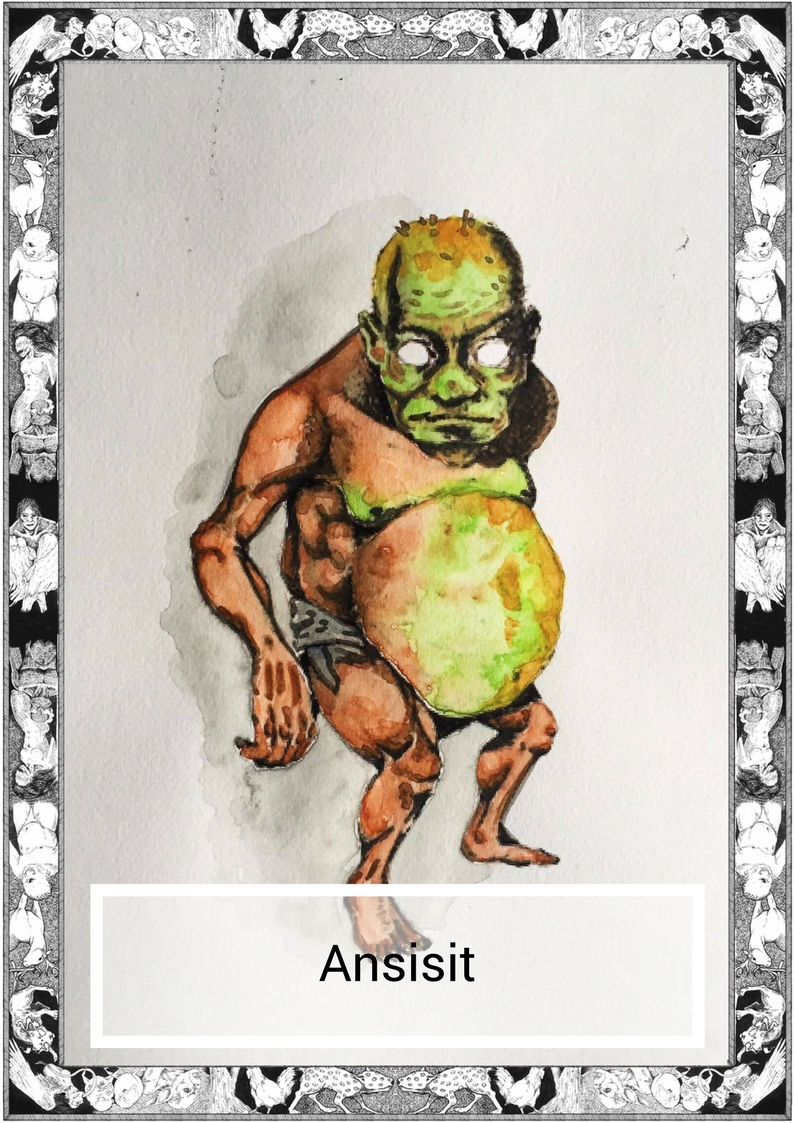
*Note this story is in Bicol-Sorsoganon
“Tabi tabi po.”
“Sabayi ako.”
“Tabi tabi po.”
“Dapat sabihun mo ina pag magi ka didi.”
“Bawal kita didi magsamhod, mama?”
“Bawal. Mayad kay narumduman mo.”
“Nano kay bawal? Saaton man ini balay.”
“Balay ta ini. Yadi an mga gamit ta. Pero sain ini nakatindog?”
“Sa duta?”
“An duta, an kinab-an, dili ina saaton.”
“Binakal ta ini na duta. Kabas-an ta ina! Didi pa ngani ako nagkakanam.
“Amu binakal ta ini. Igwa kitang mga papeles. Pero an duta dili saaton, may mga tagsadiri sada na dili ta nakikita.”
“Bakalon ta na lang sainda!”
“May mga bagay na dili nababakal. Awat na sinda didi nakaistar nan maistar sinda didi maski wara na kita. Kaipuhan ta makisama sainda.”
“Pano kung habo ko? Habo ko sainda. Pag dili kita nagtaram ‘tabi tabi po’ nan nagsilhig kita nagkakasakit kita. Habo ko sin arug sada.”
“Pano kung habo man ninda na makiistar kita sainda?”
“…”
“Siguro dili mayad pag isipon o pagkitaon pero maging mabuot na lang kita sa kada saro. Pag mabuot kita sainda mabuot man sinda saaton. Nano ulit dapat ta sabihon?”
“Tabi tabi po.”
=—————————————————————————–=
English Version
“Kayu-kayu, madayu kayu.”
“Now say it with me.”
“Kayu-kayu, madayu kayu.”
“Good. Now remember, we always have to say that whenever we pass this place.”
“We also can’t sweep here right mama?”
“Yes, it’s good you remembered. I have such a smart boy!”
“But why do we have to follow these rules mama? I thought this was our house?”
“It is, it’s our place with all our things, but what is the house on?”
“….the ground?”
“Good job! Now the ground and all the earth, doesn’t belong to us.”
“But I thought this was our land? Isn’t this our farm? And isn’t this where I play?”
“Yes, yes, we bought this land, and we have all the papers to prove it, but then it gets complicated. See the land belonged to some other… people, long before we came here, before any humans started a town in this area.”
“But can’t we just buy it from those people?”
“There are just some things you can’t buy with money. This place is their home and always will be, long after you and I are gone. We have to learn to live with them.”
“What if I don’t want to? They seem mean. If we don’t say these things and if we just clean around our house we get sick. How is that fair?”
“How is it fair that they have to share their home with us?”
“…”
“It isn’t an ideal situation for either of us, but we have to learn to be kind to one another. If we are kind to them, they will be kind to us. Now what do we say?”
“Kayu-kayu, madayu kayu.”
“Good boy.”
————————–
*Kayu-kayu, madayu kayu is Ilokano for “You there please go away.” (Kayo-kayo, malayo kayo)
*The Bikol languages or Bicolano languages are a group of Central Philippine languages spoken mostly in the Bicol Peninsula in the island of Luzon, the neighboring island province of Catanduanes and the island of Burias in Masbate. There is a dialect continuum between the Visayan languages and the Bikol languages; the two together are called the Bisakol languages.
The Tabaco-Legazpi-Sorsogon (TLS) dialect is spoken in the eastern coast of Albay and the northeastern part of Sorsogon. TLS is the dialect that has been most influenced by the Inland Bikol languages.
Written by Karl Gaverza
Bicol Translation by Sara Grace C. Fojas
Copyright © Karl Gaverza
Translation Copyright © Sara Grace C. Fojas
Story inspired by Ansisit description in 101 Kagila-gilalas na Nilalang. Samar. 2015
Ansisit Illustration by Leandro Geniston from Aklat ng mga Anito
FB: That Guy With A Pen
Watercolor by Catherine Chiu
FB: Wildling Child
IG: https://www.instagram.com/
